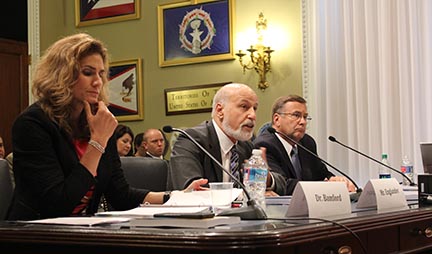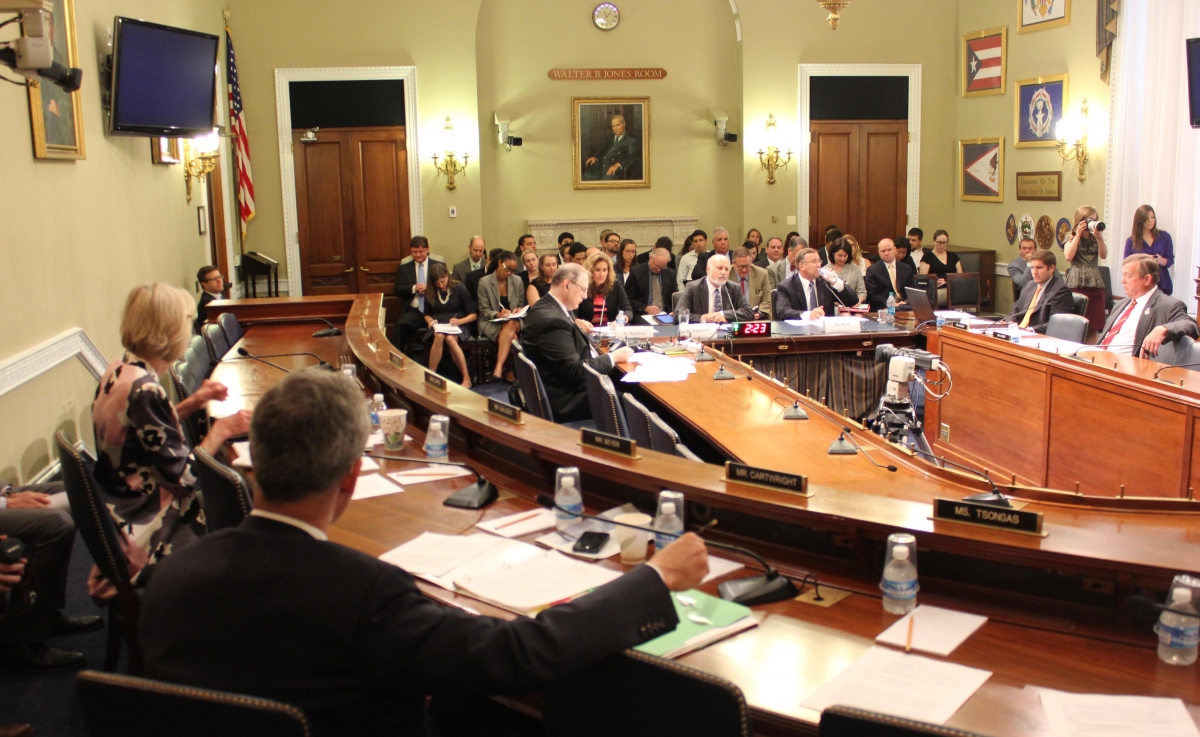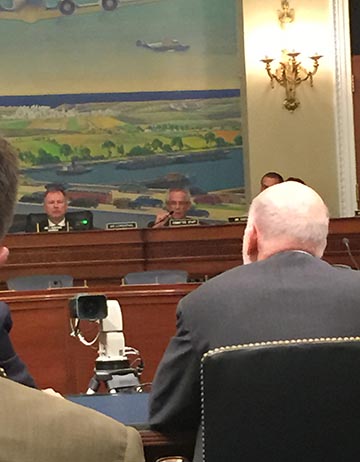Testifying to Congress about Rising Sea Level

Yesterday was my first invitation to testify to Congress. More specifically it was the House Subcommittee on Energy and Mineral Resources, part of the Natural Resources Committee. They were looking at a law that goes back to 1972, the Coastal Zone Management Act, better known as CZMA.

The CZMA establishes the interrelationship between the Federal Government and the states on a broad variety of coastal issues. Most of the hearing was about the process to license nuclear power plants in the coastal zone, looking at the state and federal interplay.
I was invited to comment on the Act and took the opportunity to recommend that rising sea level warrants taking a different view to coastal zone management altogether. For those interested, my 6 page testimony can be downloaded, including the four graphic exhibits.
Here are some excerpts from my testimony:
We need to recognize that sea level rise is quite different than the temporary flooding from storms along the coast. The damaging wave action of storms is typically confined to the shoreline with storm surge affecting adjacent coastal waterways, all of which recedes in a very short time.
In the longer term, mid-century and beyond, rising sea level will dramatically change the coastal zone, probably beyond what most of us can imagine, within the lifetimes of our children and grandchildren. We can ignore reality and leave future Americans to suffer the consequences. Or we can see the future in front of us and plan for intelligent adaptation.
Recent evidence from Antarctica makes clear that the melting forces are well ahead of nearly all the models and projections, similar to the way that the melting of the polar ice cap is far ahead of the models. Those who understand the dynamics of glacial collapse and the uncertainty of specific projections, appreciate that the models will almost certainly continue to underestimate the rate of their collapse, and the sea level rise that will directly result.
The sea does not care what we think or want, or what laws we pass. Throughout history the ocean has taught man humility. We ignore its power at our peril.
Along with crisis, there is opportunity. There can be tremendous innovation and adaptation in the coming decades as we anticipate and change our coastal oriented society and economies. But getting a good return on investment requires that we see where things are headed.
Our coastline is largely unchanged since the founding of the United States, a nation founded in recognition of truth and science. Our founders specifically recognized that the world of man and nature was dynamic and would need to adapt accordingly. Our changing coastline, a significant feature of the United States, is an appropriate place to implement that attitude, respecting the collaborative relationship between the Federal government and the States. From my perspective the CZMA seems like the right forum to have that discussion about public policy.
The sea is rising and the shoreline is shifting. We have time to adapt, but no time to waste.
Following my formal testimony I got a lot of positive feedback from members, several of whom invited me to their offices to meet privately. It was a very interesting day, with considerable interest, in spite of the rush of the final week before their summer recess. I look forward to see what comes of this.


